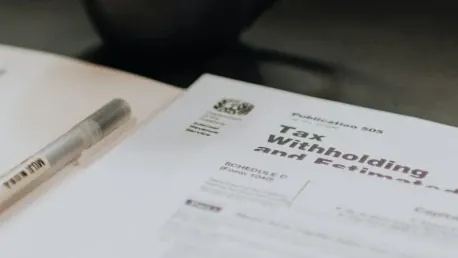The significant constitutional reforms spearheaded by outgoing Mexican President Andrés Manuel López Obrador have caused considerable concern among international observers, notably within the U.S. and Canada. These changes, coupled with America’s own ongoing legislative efforts around the estate tax and cybersecurity policies, paint a complex picture of the current business and trade landscape between the two nations.
Mexican Constitutional Reforms and Their Ramifications
President Andrés Manuel López Obrador’s impending broad constitutional amendments stand poised to impact Mexico’s judiciary significantly. These changes also entail the elimination of multiple state regulatory and oversight agencies, a move that U.S. and Canadian ambassadors have met with alarm. The fallout from these reforms threatens to freeze diplomatic relationships and has already resulted in a deep freeze in interactions with the embassies of these countries.
Mexico’s position as America’s largest trading partner, with a recorded trade volume of $900 billion last year, underlines the gravity of these relations. Investment bank Morgan Stanley’s “sell” recommendation on Mexico reflects the anxiety brewing within financial circles. Such concerns are echoed by the National Association of Manufacturers (NAM), which worries that Mexico’s attractiveness as a business and investment hub might suffer severely due to these proposed reforms.
Trade Dynamics Between the U.S. and Mexico
The U.S.–Mexico trade relationship, accounting for a colossal annual trade volume, is of utmost significance for both economies. A stable and predictable business environment in Mexico is paramount for maintaining and growing this critical trade lane. Disruptions or perceived instability caused by López Obrador’s reforms could have wide-reaching consequences.
Manufacturers reliant on the robust U.S.–Mexico trade corridor fear potential administrative and operational hurdles. Uncertainty around Mexico’s regulatory landscape can deter not only new investments but can also jeopardize existing business operations, which rely heavily on seamless trade protocols and reliable governance.
Repeal of the U.S. Estate Tax: Perspectives and Debate
In the United States, Representative Randy Feenstra (R-IA) is leading a charge to eliminate the estate tax, branding it a serious threat to family-owned businesses. The estate tax, despite being modified in 2017 to double the valuation threshold for exemption, still looms large over many small manufacturers who find their business assets tied up in illiquid formats like machinery and real estate.
Rep. Feenstra’s advocacy is rooted in real-life stories from small business owners, who argue that without further relief, the estate tax could force these businesses into selling off essential assets or ceasing operations entirely upon the death of an owner. The sentiment among these business owners is clear: the estate tax adds financial stress during an already challenging transitional period, potentially threatening their business’s survival.
NAM’s Push for Legislative Reforms
The National Association of Manufacturers (NAM), through its “Manufacturing Wins” campaign, is vocal about the necessity of repealing the estate tax. NAM emphasizes that the tax reform from 2017 provided much-needed relief but underscored the need for complete repeal to ensure long-term stability for family-owned enterprises.
This advocacy aligns with a broader legislative push to create a more business-friendly environment in the U.S. Lawmakers supporting this repeal argue that in the face of international competition and internal economic pressures, tax policies in the U.S. should foster an environment conducive to business sustainability and growth.
Cybersecurity Policies and Business Concerns
On the cybersecurity front, Rep. Andrew Garbarino (R-NY) and the NAM Technology Policy Committee are scrutinizing a draft rule from the Department of Homeland Security (DHS). This rule mandates that significant cyber incidents be reported within 72 hours, a requirement that business groups argue could overburden companies and divert critical resources from addressing the cyber threat itself.
The NAM Technology Policy Committee’s critique highlights the need for balanced regulatory frameworks that enhance security without imposing excessive compliance costs on businesses. They call for nuanced policy-making that addresses the dual goals of security and economic viability, ensuring businesses can operate without the looming threat of disproportionate regulatory burdens.
Economic Security through Policy and Trade Considerations
Central to the discussions around both Mexican reforms and U.S. legislative efforts is the theme of economic security. A stable, predictable environment is crucial not just for fostering business growth but also for maintaining a robust international trade relationship.
Broad concerns about President López Obrador’s constitutional reforms hint at a potential disruption in North American trade dynamics. Similarly, the debate over the estate tax emphasizes the importance of shielding small businesses from potentially devastating financial burdens. Both issues resonate with a collective aim to support a resilient business ecosystem, whether through fostering favorable tax policies or ensuring stable international trade relations.
Balancing Regulatory Impact and Business Operations
Outgoing Mexican President Andrés Manuel López Obrador’s significant constitutional reforms have generated substantial concern among international observers, particularly in the U.S. and Canada. These sweeping changes not only alter Mexico’s political landscape but also have significant implications for its business and trade relationships with neighboring countries. The reforms touch on contentious issues such as energy policies, judicial independence, and social welfare programs, stirring debates domestically and internationally.
At the same time, the U.S. is grappling with its own legislative efforts, focusing on crucial areas like estate taxes and cybersecurity measures. These ongoing discussions and potential policy shifts add another layer of complexity to the relationship between the two nations. Businesses and trade partners are closely monitoring these changes, as they could influence economic stability and bilateral trade agreements.
In Canada, similar concerns are being raised as policymakers evaluate the potential impacts of Mexico’s constitutional changes on trade and diplomatic ties. Canada’s focus is on ensuring that its economic interests and regional stability are preserved amidst these reforms.
Overall, the period of policy changes in North America signals a time of uncertainty and cautious optimism. Stakeholders in business, government, and civil society must navigate this evolving landscape carefully, balancing national interests with international relationships to maintain stability and growth in the region.









